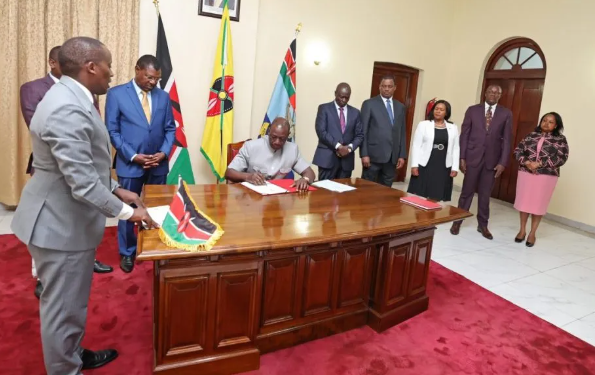President William Ruto has recently endorsed the contentious Affordable Housing Bill, a move that has drawn significant attention. The signing ceremony took place at State House, Nairobi on Tuesday, marking a crucial step forward amidst debates surrounding the reintroduction of housing levy deductions.
Following its passage through both the Senate and the National Assembly, with notable amendments such as the inclusion of county governments, the bill has garnered heightened scrutiny.
Under the new legislation, both employers and employees are mandated to remit a deduction of 1.5% from their monthly salaries, further impacting citizens’ finances. This levy, previously deemed unconstitutional by the High Court in 2023 and subsequently upheld by the Court of Appeal, lacked a proper legal framework upon its initial introduction.
However, Ruto’s administration has persisted in justifying the levy, citing a suspension period for bill restructuring, which now provides a revised legal foundation.
The bill outlines four key components of Affordable Housing, catering to various income brackets: the Social Housing Unit for individuals earning less than Ksh.20,000, Middle Class housing for those earning above KES 49,000, General Affordable Housing for earners between KES 20,000 to KES 149,000, and Rural Housing for inhabitants outside urban zones.
Notably, the responsibility for executing the housing initiative falls upon several entities, including the Ministry of Housing, National Housing Corporation (NHC), county governments, and private entities endorsed by the Affordable Housing Board.
Emphasis is placed on prioritizing slum areas for housing development and preventing multiple allocations of housing units.
Additionally, the bill stipulates the sourcing of construction materials from local manufacturers and the utilization of local labor, thereby fostering community engagement and economic empowerment.
















